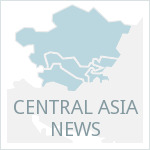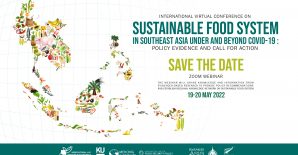News
China says Shanghai security bloc could soon agree on free trade area
A senior Chinese diplomat revealed that the security-focused Shanghai Cooperation Organization (SCO) could soon provide the basis for a free trade zone. Assistant foreign minister Li Huilai told reporters about the long-mulled plan ahead of an SCO summit in Russia next week. China, Kazakhstan, Kyrgyzstan, Russia, Tajikistan, and Uzbekistan originally formed the SCO in 2001 to respond to security threats from Afghanistan. India and Pakistan joined the bloc this year. – Reuters
Afghan economy expected to pick up with launch of new trade corridor
On November 15, officials from Afghanistan, Azerbaijan, Georgia, Turkey, and Turkmenistan finalized an agreement to construct a new transportation corridor that will link Afghanistan with European markets. The Lapis Lazuli project will construct or improve existing rail, road, and sea links. Moreover, it will coordinate customs operations and other measures to reduce transaction and procedural costs along the route. The proposed route will also connect to other transport corridors in Turkey and the Caucasus to access multiple destinations. – Caspian News
ADB OKs first country strategy for Turkmenistan to back diversification of energy markets
The Asian Development Bank (ADB) has endorsed a five-year country partnership for Turkmenistan, the first of its kind since the country joined the ADB in 2000. ADB support will be focused on enabling Turkmenistan to expand to new energy markets, improve regional transport connectivity, and diversify its non-hydrocarbon economy. –AzerNews
Statement at the conclusion of an IMF staff visit to Uzbekistan
The IMF recently concluded a mission to Uzbekistan, after which it published a statement commenting on the economic and financial situation in the country. The IMF team welcomed the liberalization of the foreign exchange market and local authorities’ apparent commitment to reforms. Moreover, the Uzbek government is taking steps toward joining the IMF’s General Data Dissemination System (E-GDDS), which the IMF believes will improve the quality and transparency of economic statistics reporting. – IMF
Analysis & Other Information
Kyrgyz president calls on Russia to mediate Kyrgyz-Kazakh crisis
Outgoing Kyrgyz president Almazbek Atambayev reportedly appealed to his Russian counterpart Vladimir Putin to step in and help mediate the current dispute between Kazakhstan and Kyrgyzstan. According to Atambayev, the crisis presents considerable risk to the Eurasian Economic Union, which he added that Kyrgyzstan has no intention of leaving. Atambayev’s successor Sooronbai Jeenbekov will be sworn into office this Friday. – Xinhua
Kazakhstan: Financial illiteracy hampering economic recovery
Forthcoming research by Kazakhstan’s National Bank will reveal how well the public understands personal finance. The government believes that poor financial literacy is preventing its citizens from benefiting from existing financial services. Moreover, poor decisions on the part of both lenders and borrowers are creating debt problems at a larger scale, requiring some financial institutions to request bailouts. Meiram Kazhyken, an expert at the Applied Economic Research Center thinktank warned against blanket generalizations about public financial literacy, saying that demographic considerations, namely income levels and economic activities of individuals, need to be taken into account. – EurasiaNet
Azerbaijan, Tajikistan to resume air traffic between capitals
Regular air service will open between Baku and Dushanbe starting in December 2017. The Baku-Dushanbe route had been serviced periodically in the past but was discontinued due to low demand. – Trend News Agency (Azerbaijan)
Publications & Reports
Overview of water-related programs in Uzbekistan
K. Djumaboev, O. Anarbekov, B. Holmatov, A. Hamidov (2017). International Water Management Institute (IWMI). Project report.
Impact of institutional change on irrigation management: a case study from southern Uzbekistan
K. Djumaboev, A. Hamidov, O. Anarbekov, Z. Gafurov, K. Tussupova (2017). Water, 2017, 9(6), p. 419.
Digital diagnostic atlas: Murgab river basin
Z. Gafurov, S. Eltazarov (2017). International Water Management Institute (IWMI).
The return of the regulator: Kazakhstan's cotton sector reforms since independence
M. Petrick, D. Oshakbayev, R. Taitukova, N. Djanibekov (2017). Central Asian Survey, 36(4), pp. 430-452.
WFP Tajikistan Country Brief, September 2017
World Food Programme (2017).
Determinants of labor migration flows to Russia: evidence from Tajikistan
M. Yormirzoev (2017). Economics and Sociology, 10(3), pp. 72-80.
Monitoring of uranium concentrations in water samples collected near potentially hazardous objects in northwest Tajikistan
P. Zoriy, M. Schlager, K. Murtazaev, J. Pillath, M. Zoriy, B. Heuel-Fabianek (2018). Journal of Environmental Radioactivity, 181, pp. 109-117.
Archived issues of the news digest can be found on the Central Asia page under the ReSAKSS Asia website: http://resakss-asia.org/regions/central-asia. A link to the newsletter can be found under Blog Posts.
The articles included in this news digest have been generated from online sources. Any opinions stated herein are not representative of, or endorsed by, the International Food Policy Research Institute or its partners.



